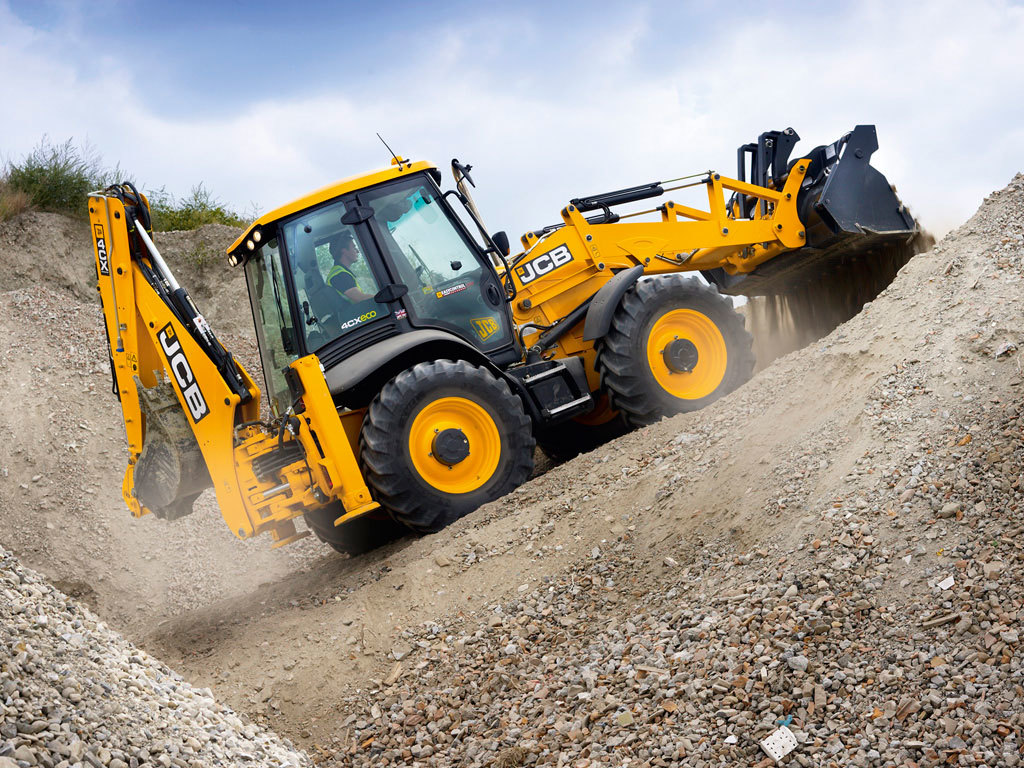YETRAC
J.C. Bamford Excavators Limited (JCB): Transforming Industries and Empowering Progress
J.C. Bamford Excavators Limited (JCB): Transforming Industries and Empowering Progress
J.C. Bamford Excavators Limited, widely recognized as JCB, is a British multinational corporation that has left an indelible mark on the global heavy equipment industry. Established in 1945 by the visionary entrepreneur Joseph Cyril Bamford, this company has grown from a humble garage operation into a colossal force that shapes construction, agriculture, waste handling, and demolition sectors worldwide. In this comprehensive article, we delve into the remarkable journey of JCB, exploring its history, diverse product portfolio, global impact, innovations, controversies, and contributions to society.
Origins and Early Beginnings
The story of JCB begins in Uttoxeter, Staffordshire, England, in October 1945, when Joseph Cyril Bamford embarked on an entrepreneurial adventure. Armed with a second-hand welding set purchased for a mere £2.50 from English Electric and a creative spirit, Bamford crafted his first vehicle, a tipping trailer made from war-surplus materials, including steel sheets from air raid shelters. On the same day his son, Anthony, was born, Bamford sold the trailer at a local market for £45, signaling the inception of his entrepreneurial journey.
Innovations That Shaped Industries
Hydraulic Tipping Trailer (1948): In 1948, JCB introduced Europe’s first hydraulic tipping trailer, a groundbreaking innovation that revolutionized material handling and transport in construction and agriculture.
Distinctive Yellow Color (1951): In 1951, Bamford decided to paint his machines yellow, a decision that would become iconic. This distinctive yellow color is now synonymous with JCB machinery and symbolizes quality and reliability.
Backhoe Loader (1953): A pivotal moment in JCB’s history arrived in 1953 with the introduction of the world’s first backhoe loader. This versatile machine combined the functions of a loader and an excavator, setting the stage for JCB’s dominance in the construction industry.
Hydra-Digga (1957): The firm’s “hydra-digga” launched in 1957 further solidified its reputation as an industry innovator. This multifunctional tool integrated an excavator and a major loader, becoming an indispensable asset in both agricultural and construction applications.
Global Expansion and Diversification
JCB’s remarkable journey extended beyond the shores of the United Kingdom. By 1964, it had sold over 3,000 of its 3C backhoe loaders, gaining international recognition. In 1978, JCB introduced the Loadall machine, a telescopic handler that significantly improved material handling efficiency. This global expansion continued with the establishment of operations in India in 1979 and Brazil in 1980.
In 2005, JCB further diversified its portfolio by acquiring the German equipment firm Vibromax and establishing a new factory in Pudong, China. This marked a significant step in the company’s mission to provide innovative solutions to a global customer base.
Fastrac Tractors and Beyond
JCB’s innovations were not confined to construction equipment. In 1990, the company unveiled the groundbreaking Fastrac range of tractors. These tractors could travel at speeds of up to 75 km/h (40 mph) on roads, a game-changer for agricultural transportation. They gained recognition on the BBC television program “Tomorrow’s World” and later became Jeremy Clarkson’s preferred tractor on “Top Gear.”
Additionally, JCB expanded into manufacturing military vehicles, such as the JCB HMEE, designed to meet the stringent requirements of defense applications. The company also ventured into the telecommunications sector by licensing a range of rugged feature phones and smartphones tailored for use on construction sites.
JCB Power Systems and Hydrogen Combustion Engines
JCB Power Systems entered the arena of sustainable energy with the development of a hydrogen combustion engine. Leveraging components from the company’s Dieselmax engines, this initiative aimed to provide cost-effective and eco-friendly power solutions.
Insurance Services and Financial Arm
JCB Insurance Services, a fully owned subsidiary of JCB, emerged as a trusted provider of insurance solutions for customers. This subsidiary collaborated with JCB Finance, another fully owned entity, to offer tailored insurance products, reinforcing JCB’s commitment to comprehensive customer support.
The JCB Dieselmax Land Speed Record Vehicle
In April 2006, JCB embarked on a remarkable land speed record project known as the ‘JCB Dieselmax.’ This diesel-powered vehicle, equipped with two modified JCB 444 diesel power plants and a two-stage turbocharger, achieved astounding speeds. Under the skilled hands of driver Andy Green, the Dieselmax broke the diesel engine land speed record, reaching speeds of 350.092 miles per hour (563.418 km/h). This achievement showcased JCB’s commitment to innovation and engineering excellence.
Controversies and Challenges
JCB, like many multinational corporations, has faced its share of controversies:
EU Antitrust Violation: In December 2000, JCB incurred a €39.6 million fine from the European Commission for violating European Union antitrust law. The fine related to restrictions on sales outside designated territories, among other practices.
Tax Avoidance: JCB’s financial practices have come under scrutiny, with reports of offshore trusts and subsidiaries in tax havens.
Involvement in Israeli Settlements: JCB’s inclusion in a United Nations database listing companies involved in activities related to Israeli settlements in the Occupied Palestinian Territories raised concerns regarding its role in such projects.
Bailout Loan: During the COVID-19 pandemic, JCB received a £600 million emergency loan from the UK government, sparking debate due to the company’s financial standing and ownership structure.
Brexit and Political Influence: JCB’s chairman, Anthony Bamford, actively supported Brexit and contributed to pro-Brexit causes. The company has also been a significant donor to the UK Conservative Party.
JCB’s story is a testament to entrepreneurial spirit, innovation, and a commitment to excellence. From a humble garage in Uttoxeter to a global industrial giant, JCB’s journey reflects the remarkable progress of the heavy equipment industry.
Today, JCB stands not only as a manufacturer of machinery but as a symbol of British engineering prowess. Its products are used on construction sites, farms, and industries around the world. Despite the challenges and controversies it has faced, JCB’s legacy of innovation continues to empower progress in construction, agriculture, and beyond.

